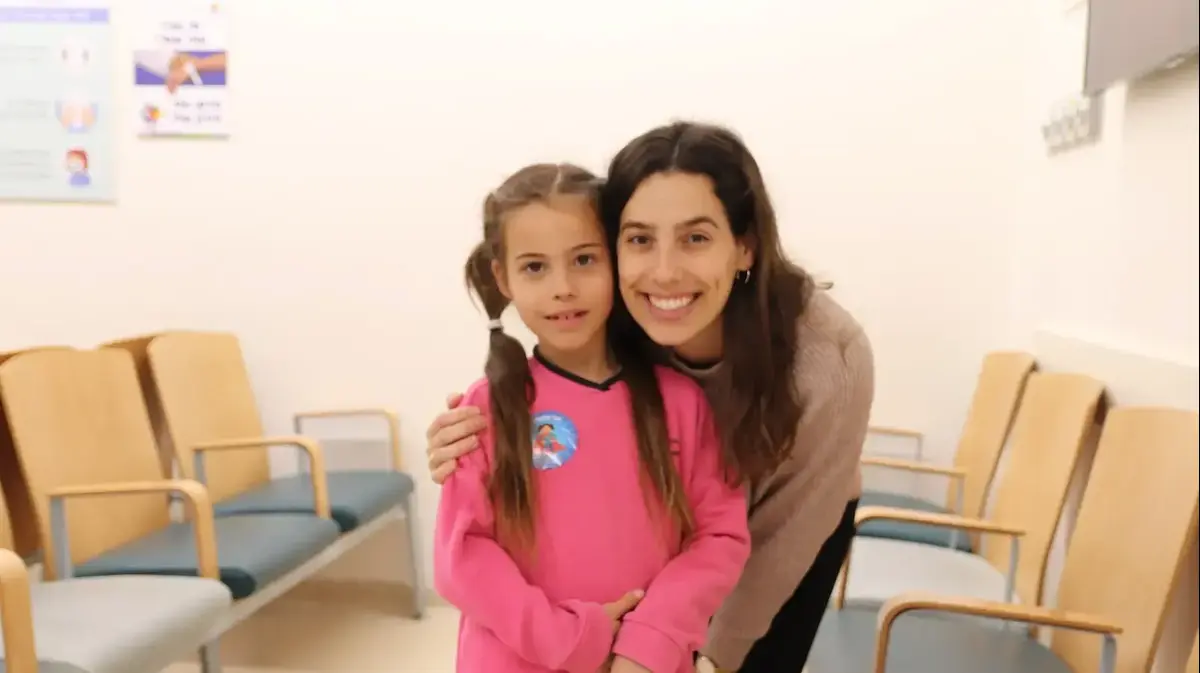Maya with Paula in the Schneider emergency room/courtesy of those photographed
Gabi and Maya, medical students at Tel Aviv University, share another thing in common - they both work at the Schneider Pediatric Center as service coordinators in the emergency department (emergency department).
A service coordinator is a unique position that was introduced for the first time in Israel at the Schneider Medical School several years ago and has now been expanded and operates in other departments and units in the hospital. The service coordinator team accompanies the patients and their families and mediates the patient's journey from the moment of entry until the end of treatment or discharge home. The service coordinator transmits information proactively and takes care of accompanying and communicating the various processes, coordinating expectations with the patient and the parents and providing supervision in order to create a sense of security, reduce feelings of anxiety, fears and uncertainty. The service coordinator also takes care of the well-being of the patients and family members. Today, Schneider operates 5 service coordinators at the MLR and another 7 Service coordinators in hospitalization wards and the various institutes.
The coordinators work every day, including weekends between 16:00 and 24:00.
"When a patient comes to the emergency room, he is under pressure, he doesn't know who is against who, what awaits him and how long he has to wait," Gabi and Maya say, "so as soon as he enters the emergency room, the service coordinator arrives and introduces himself. From that moment on, the service coordinator becomes the cause The patient's companion throughout the visit to the emergency department until he goes to the ward or is sent home.
Gabi, medical student and service coordinator in the emergency medicine department (emergency room) in Schneider/Schneider Children's Hospital
"The parents want to be talked to in a way that they understand, to be given all the information and to explain where they are in the process. Once the parents are calm, the child is calmer."
"We don't stick to one patient," they add, "we look at the big picture, at the flow in the department, at the various departments and processes. We constantly move from patient to patient and provide information in a proactive manner. A service coordinator knows what the next station is for each patient and what they are waiting for If we know that a patient is waiting for the results of a blood test, let's say, we can inform him that it will take an hour and a half to two hours, and he knows that he has to wait and can contact us for information regarding the expected return of the results and for any matter, we are here. That they understand, to give them all the information and explain where they are in the process. Once the parents are calm, the child is calmer."
On the advantage and added value of the role both for the patients and for themselves, they say: "The advantage is twofold - on the one hand, the patients get people who understand the world of the hospital, on the other hand, this work makes us better and more empathetic doctors, for whom the patient experience is part of their DNA.
This is the future."
More on the same topic:
Schneider
medicine

